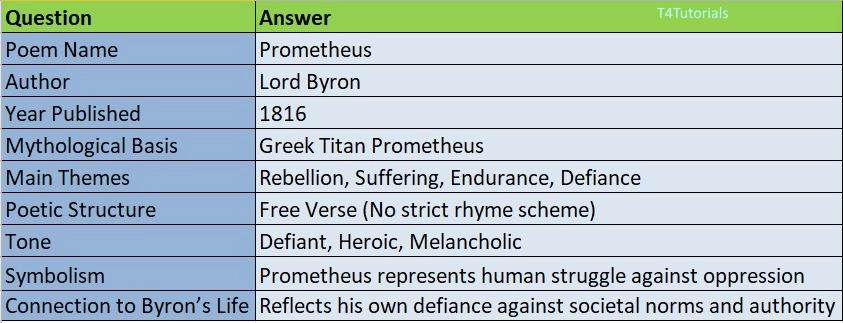Summary:
“Prometheus” is a poem by Lord Byron, first published in 1816. It is inspired by the Greek mythological figure Prometheus, who defied the gods by giving fire to humanity and was punished by Zeus. Byron’s poem presents Prometheus as a symbol of resistance, suffering, and defiance against tyranny. The poem praises Prometheus for his unbreakable spirit, portraying him as a tragic hero who suffers for the benefit of humanity. Unlike the traditional myth, Byron’s Prometheus does not seek revenge or relief but endures pain with dignity and defiance. The poem reflects Romantic ideals, particularly individualism, rebellion, and human resilience. It is often seen as an expression of Byron’s own struggles against oppression and societal norms.
10
Score: 0
Attempted: 0/10
Subscribe
| Question | Answer |
| Poem Name | Prometheus |
| Author | Lord Byron |
| Year Published | 1816 |
| Mythological Basis | Greek Titan Prometheus |
| Main Themes | Rebellion, Suffering, Endurance, Defiance |
| Poetic Structure | Free Verse (No strict rhyme scheme) |
| Tone | Defiant, Heroic, Melancholic |
| Symbolism | Prometheus represents human struggle against oppression |
| Connection to Byron’s Life | Reflects his own defiance against societal norms and authority |